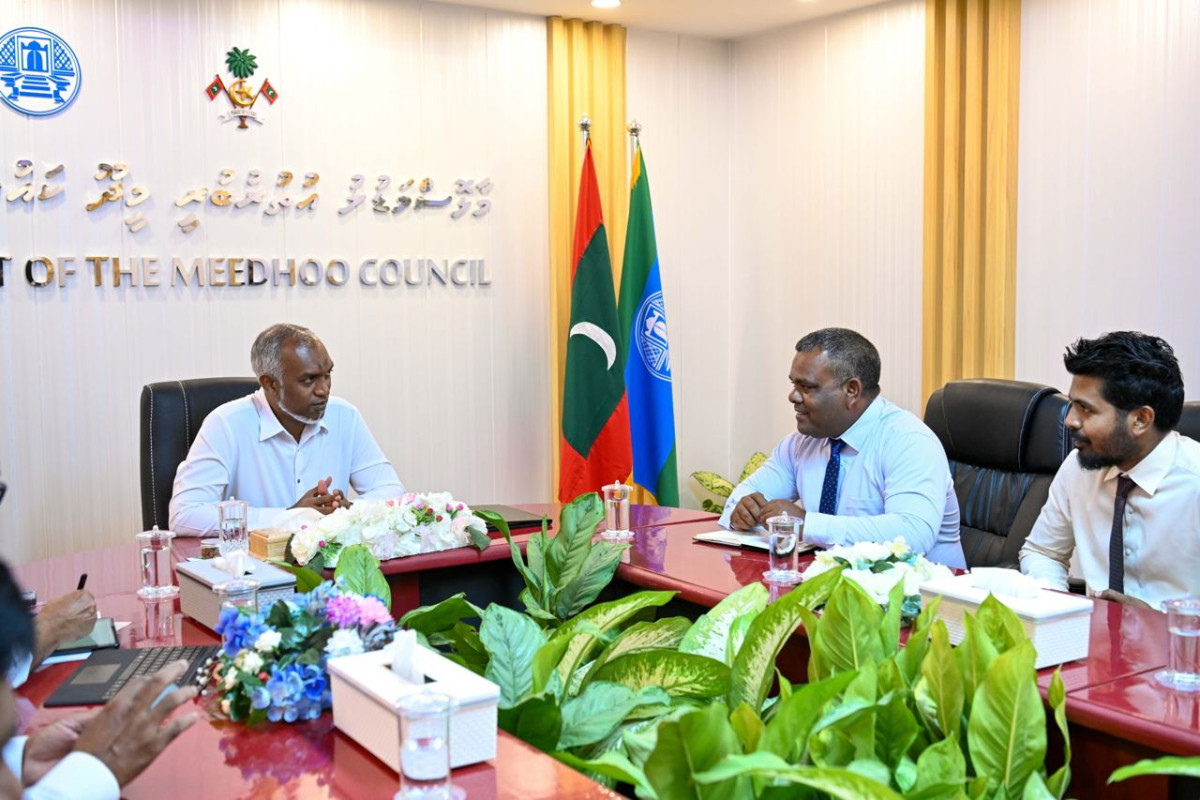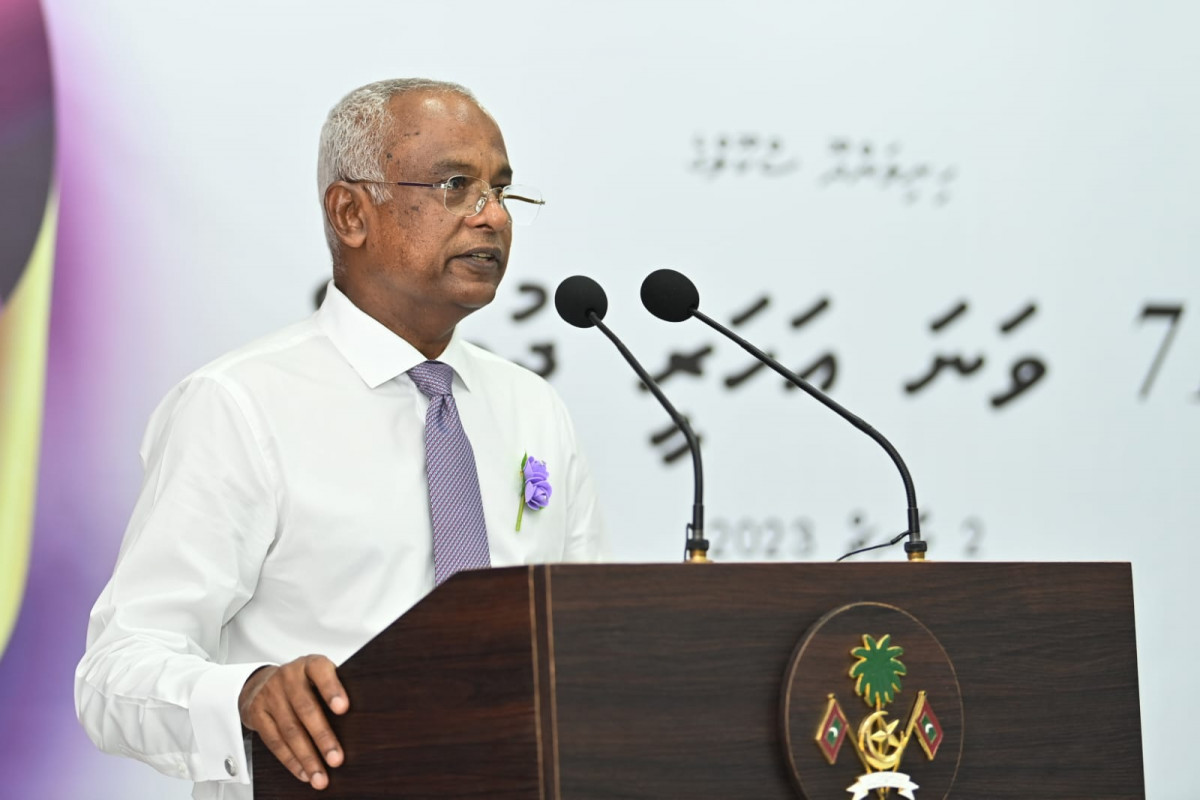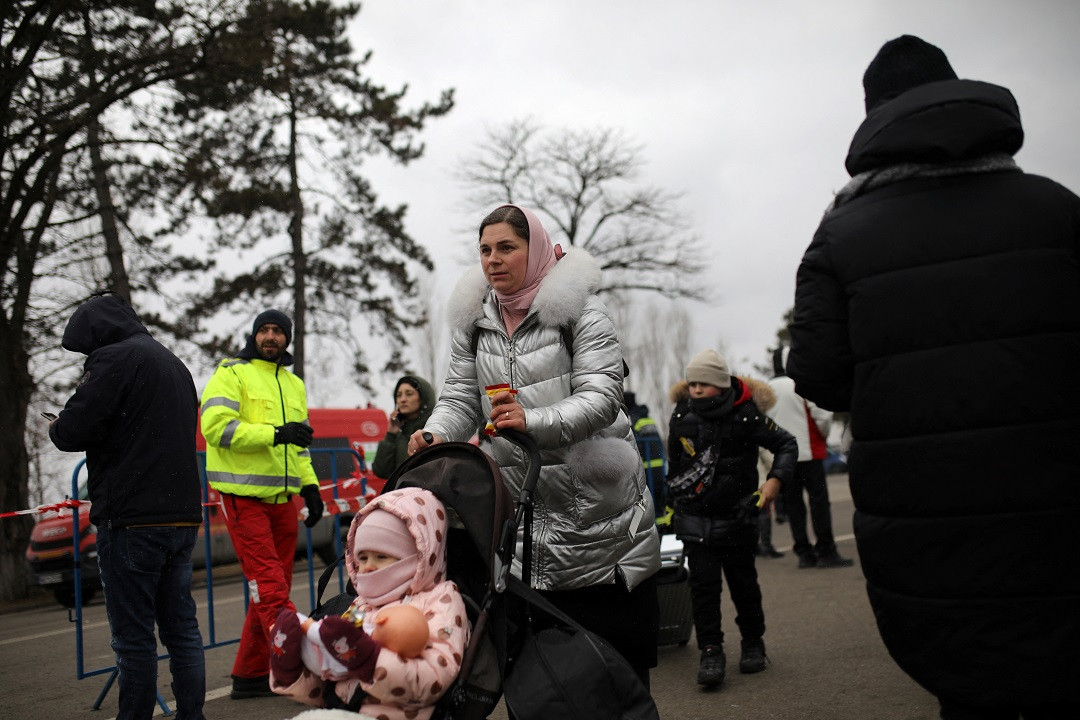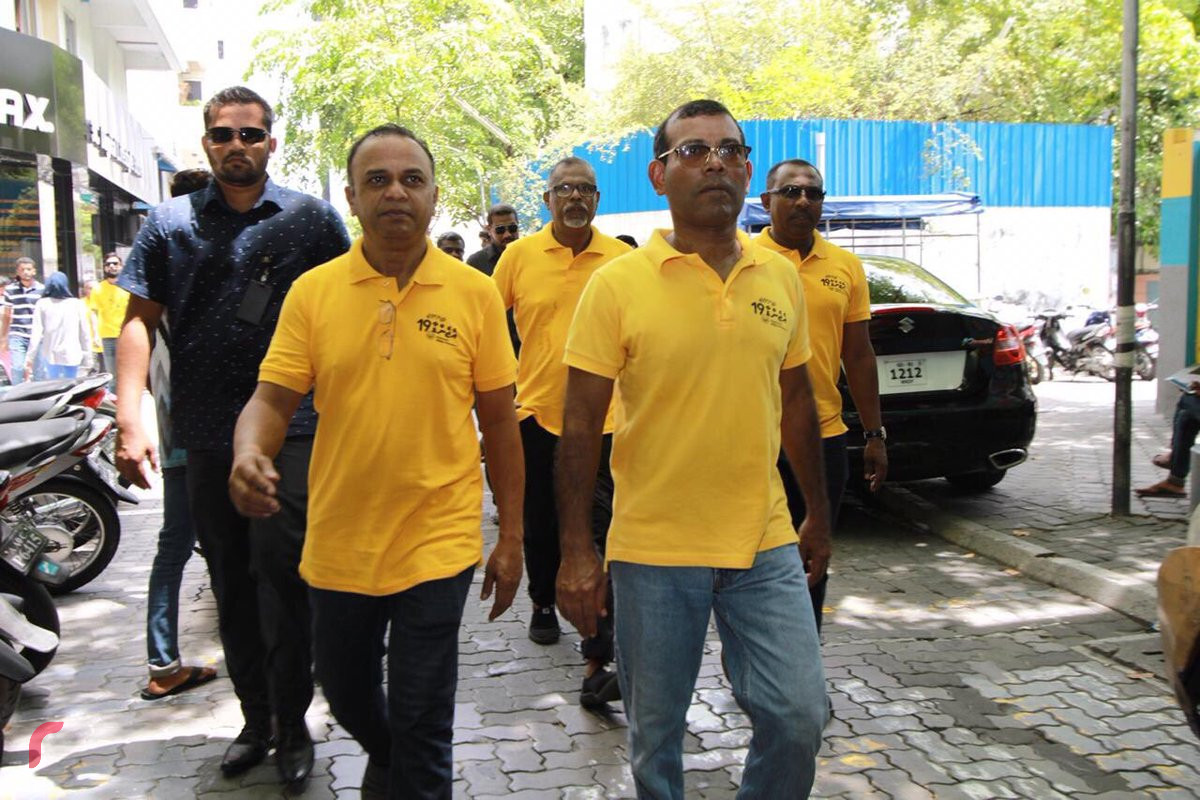"Fate of Maldives ceasing to exist will be a dark omen of grim future awaiting rest of the world"
The president pleaded to "not let this opportunity go to waste"

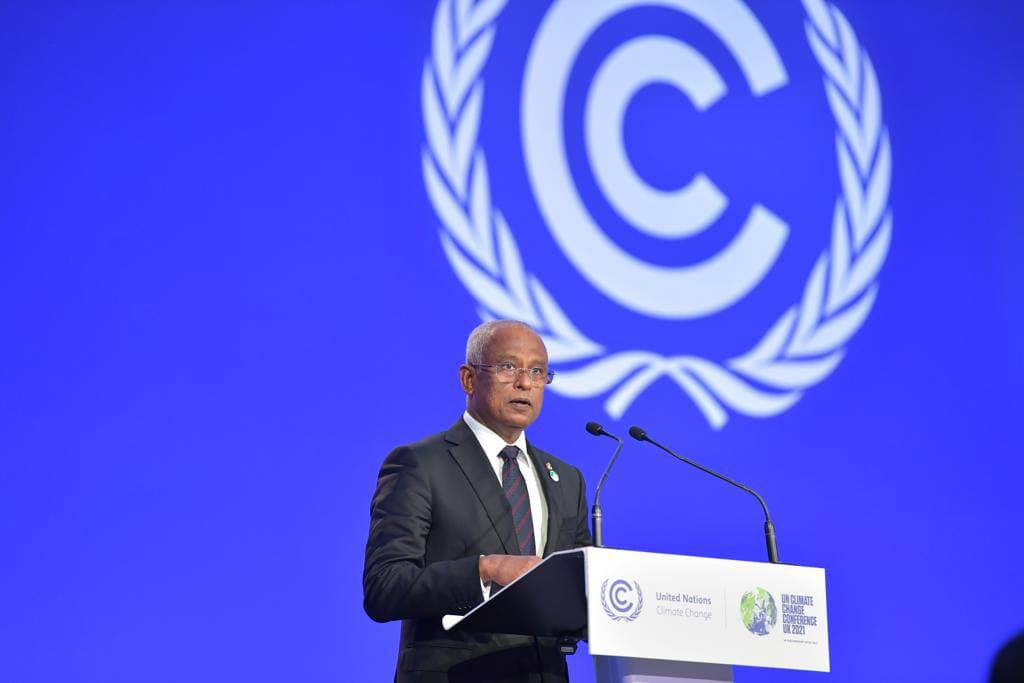
President Ibrahim Mohamed Solih
President Ibrahim Mohamed Solih has asserted that in a world the Maldives ceases to exist in, its fate will remain “a dark omen” of the “grim future” that awaits the rest of the world.
In his national address at the 2021 United Nations Climate Change Conference of the Parties (COP26) World Leaders Summit on Monday night, the Maldivian president shed light on the harsh realities of climate change that loom over the Maldives.
Stressing that he has stepped up to say the “exact same things” in multiple foras as the leader of a small island state, Solih noted that he has to keep on repeating it because Maldives’ existence is at stake.
Posing the important question of “What will it take for you to listen to us?” the Maldivian president stressed that Maldives will cease to exist by the end of the century if the harsh trends revolving around climate change are not reversed.
Highlighting that science implicates many things like Maldives is facing a “code red” scenario where global mean temperature is presently at 1.1 degree Celsius above pre-industrial levels, the president stated that it is rising at frightening pace towards the 1.5-degree ceiling.
It is also to be noted that wildfires, harsher droughts and storm surges ravage communities around the world with greater intensity and frequency because of climate change, said President Solih, who went on to note that it is evident that the globe’s capacity to protect the health, well-being and safety of its people is being “driven to the brink”.
Stressing that Maldives faces a death sentence if the temperature rise remains unchecked at 1.5 and jumps to two degrees, Solih noted that the island nation is determined to be a part of global solutions to reverse the climate change trends.
Further, the president in his address, noted that climate emergency cannot be solved by the actions of individual nations alone and that commitments are not enough.
With this being said, he urged major emitters to step up their nationally determined contributions and make even more ambitious commitments to achieving Net Zero, going on to push countries to forge into one major force to assist the most climate-vulnerable states to adapt to climate change.
The Maldivian president went on to express disappointment that the globe has not come around to stay true to its pledge of providing USD 100 billion to develop vulnerable states, on an annual basis. This pledge was made at Paris.
In conclusion, the president noted that despite the pandemic, leaders from across the globe have come to Glasgow with a common purpose, as they are all aware that this might “in fact” be the “last chance” they have to get ahead of climate change.
A hopeful president pleaded to “not let this opportunity go to waste”.
During the 74th Session of the United Nations General Assembly (UNGA) in 2019, Maldives announced its ambitious plan to reach net-zero by 2030, with international support.
Wealthier nations have been urged by the Maldivian president, to reach out and extend a helping hand to vulnerable nations in capacity building, technology transfers and sourcing finance, in the face of the alarming trends surrounding global warming and the rate of rising sea levels.
Maldives has taken multiple measures to reduce and ultimately eliminate the use of single-use plastics in the country since, and aims to phase out single-use plastics by 2023.
Established as a holistic plan including achievable targets for low-lying small island nations to address the effects of climate change, the island nation's Climate Smart Resilient Islands plans comprise of deliverables in 11 key areas and prioritizes building a sustainable society that harmonizes with fragile ecosystems all the while conserving eco-rich areas and rapidly transition to renewable energy sources.

